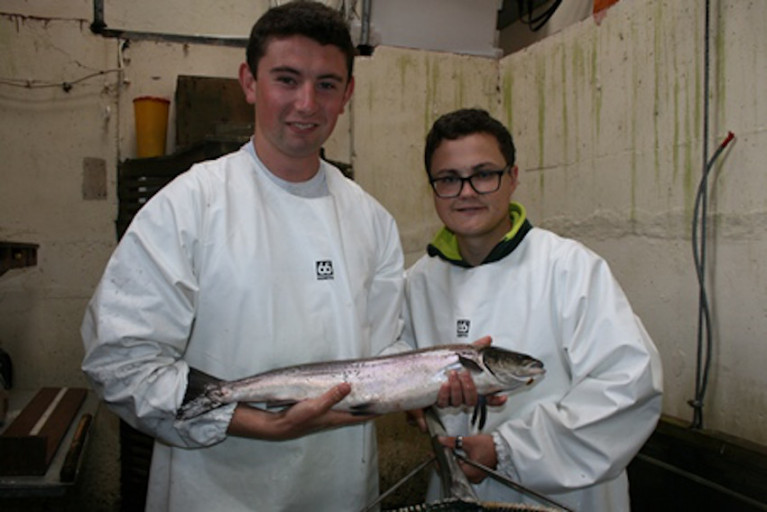The Marine Institute is inviting marine science undergradutes to apply for a number of work experience placements as part of the 2020 Summer Bursary Scholarship Programme.
In 2020, the programme will offer a number of eight- to 12-week placements for up to 22 undergraduate students.
The programme offers students practical experience in the areas of Marine and Freshwater Fisheries, Salmon Ecology, Environmental Data, Aquaculture, Oceanography, Data Visualisation, Benthic Ecology, Marine Chemistry and Marine Communications, and a new bursary position linking art and science.
The Marine Institute’s Bursary Scholarship Programme has been running for over 30 years, providing essential career development and support, and inspiring the next generation of marine scientists and experts.
A key initiative of the Marine Institute’s new Strategic Plan 2018-2022: Building Ocean Knowledge, Delivering Ocean Services, the programme equips third-level students with the skills to become ocean leaders and marine professionals of the future.
“As well as strengthening skills and knowledge, the Bursary Scholarship Programme enables students to make informed decisions early in their studies about the marine and maritime careers they would like to pursue,” said Helen McCormick, senior lab analyst and Bursary Programme co-ordinator.
“The programme provides undergraduates a unique opportunity to meet fellow students from other universities as well as work with experts in their field helping them form a future network in the marine sector.”
Successful students will receive a scholarship worth €275 per week for the duration of the work placement. Bursars will be based at various locations, including the Marine Institute headquarters in Oranmore Co Galway, the Newport Catchment Facilities in Co Mayo and other locations and ports around the country.
The Bursary Scholarship Programme is aimed at undergraduates of universities, institutes of technology and national institutes for higher education. To participate in the programme, undergraduate students must have completed two years of study in a relevant discipline by the beginning of June 2020.
The Marine Institute says it is committed to supporting a culture of high performance driven by our people, whose skills, experience and passion for the marine are central to the work we perform for government and other stakeholders.
To apply for the 2020 Bursary Programme:
- View the bursary titles available
- Select the two bursary positions that interest you the most and in order of preference
- Complete the application form and return it FAO Helen McCormick, Marine Institute, Rinville, Oranmore, Galway, H91 R673
The application deadline date is Wednesday 12 February.
































































